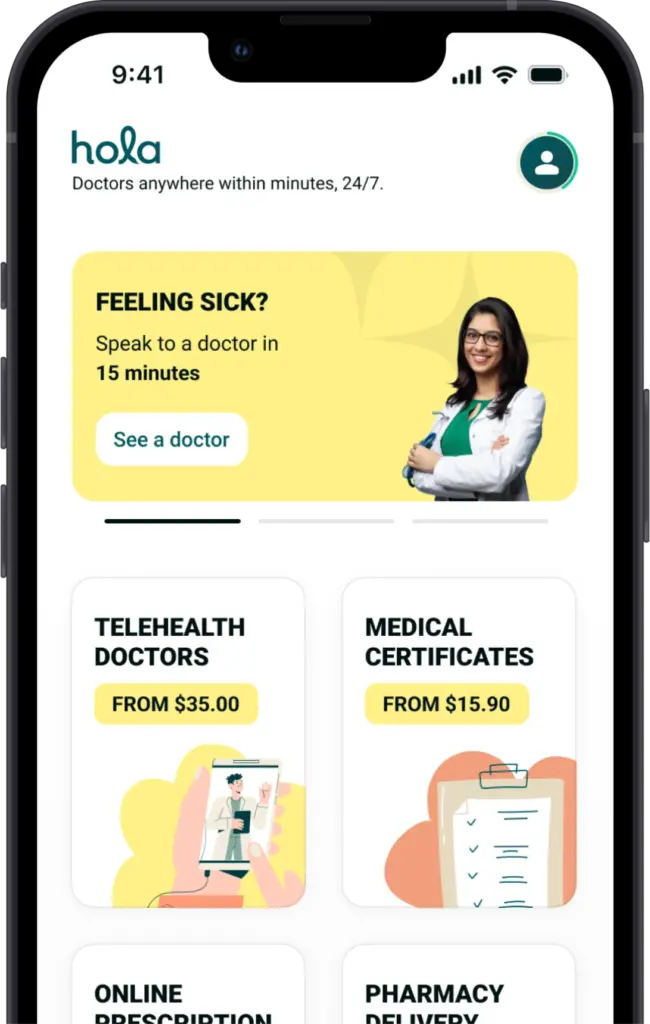- Home
- /
- Health Conditions
- /
- Bowel Infection
Bowel infection treatment
4.6/5 based on 28000+ reviews
How our doctors can help
See a doctor now
From $39
Request a certificate
From $14.90
Request a referral
From $39
Request a script
From $18.90

When to consult a doctor for bowel infection?
If symptoms are severe or worsening
If you notice severe dehydration (dry mouth, dizziness, dark urine), high fever above 101°F, intense stomach pain, or blood in stool or vomit, these may indicate a serious infection. Seek medical help immediately.
If symptoms last longer than expected
If you have diarrhoea or vomiting that continues for more than 2–3 days without improvement, or you experience unexplained weight loss or difficulty eating, consult a doctor for proper evaluation.
If you have a weak immune system
If you are someone with weak immunity due to chronic illness, chemotherapy, or other medical conditions, you should see a doctor early, as even mild bowel infections can worsen quickly.
This guide does not replace professional care. Consult a doctor to manage your symptoms. In emergencies, call 000 or visit a hospital immediately. The content is research-backed & medically reviewed by Dr. Ammar AL-ANI, MBChB, CCBST, AMC
Causes and symptoms
Bowel infection causes
- Eating undercooked, spoiled, or improperly handled food and drinking unclean or untreated water.
- Inadequate handwashing after using the toilet or before eating.
- Viral infections like norovirus spread rapidly through person-to-person contact or by touching contaminated surfaces.
- Overuse or misuse of antibiotics can disrupt the natural balance of gut bacteria.
Bowel infection symptoms
- Frequent, loose, or watery stools, which may contain mucus or blood
- Discomfort or cramping in the stomach area
- Feeling sick or vomiting
- A mild to high temperature
- A feeling of fullness or swelling in the abdomen.
- Reduced desire to eat
- Feeling tired and run down, often due to dehydration and loss of nutrients.

Types and prevention
Types of bowel infections
- Bacterial bowel infections: Caused by bacteria like Salmonella, E. coli, Shigella, Campylobacter, and Clostridium difficile (C. diff). These infections are often linked to contaminated food, water, poor hygiene or overuse of antibiotics (C. diff).
- Viral bowel infections: Viruses such as norovirus, rotavirus, and adenovirus cause viral gastroenteritis. These are highly contagious and often spread through contact with infected people, contaminated surfaces, or food.
- Parasitic bowel infections: Caused by parasites like Giardia lamblia, Entamoeba histolytica, and Cryptosporidium. These are usually contracted from contaminated water or food, especially in areas with poor sanitation.
- Fungal bowel infections: Though rare, in individuals with weakened immune systems, fungi like Candida can affect the intestines, leading to digestive issues, though these cases are uncommon.
Prevention on GP’s advice
- Maintain hand hygiene, especially before eating
- Drink clean water and eat well-cooked food
- Avoid unpasteurised products
- Disinfect surfaces
- Use probiotics
Hola Health provides a fast and convenient way for you to see a doctor online in minutes, 24/7 across Australia. Much like an in-person GP clinic, our AHPRA-registered Australian online GP will conduct a comprehensive assessment to provide the best possible care, instantly.

Speak to our doctors 24/7
Providing consults for
Helpful resources

Download our Mobile App for better performance
- Book appointments instantly.
- Stay connected wherever you are.
- Experience healthcare, uninterrupted.
 Scan the QR Code to download the app instantly
Scan the QR Code to download the app instantly 

